[Event Report] 2022 Sustainable Development Goals (SDGs) Int'l Forum SDGs雙日國際論壇
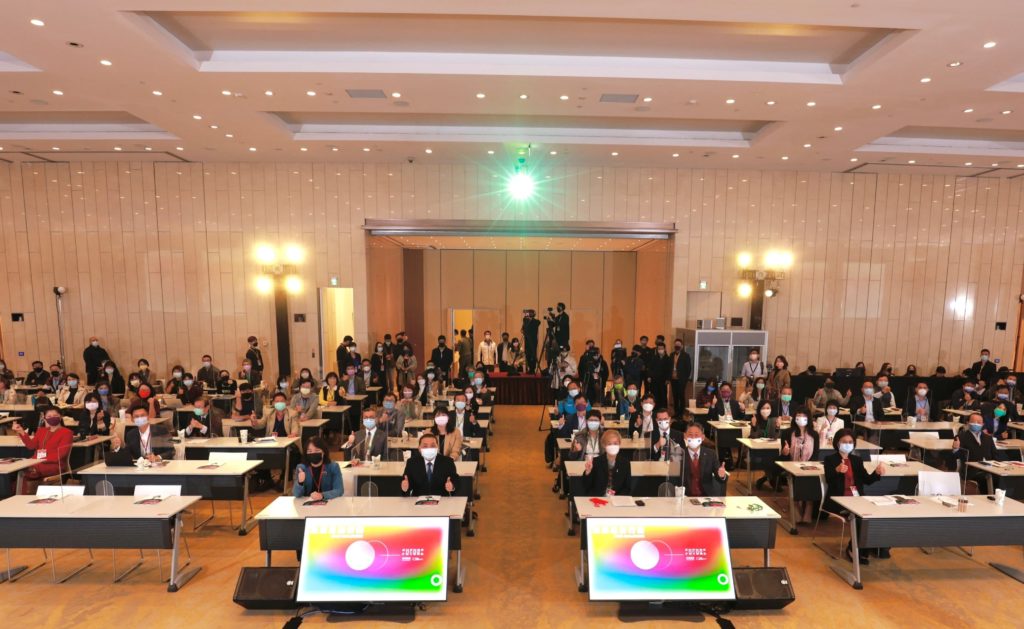
- Photo Gallery: Facebook
- LCI Member Speaker Videos:
- Six City Mayors Videos:
- Taipei City Mayor Ko Wen-Je (3:32)
- New Taipei City Hou Yu-Ih (0:07)
- Taoyuan City Mayor Cheng Wen-tsan (1:15)
- Taichung City Mayor Lu Show-yen (2:31)
- Yunlin County Chang Li-shan (1:45)
- Kinmen City Mayor Yang Cheng-Wu (0:54)
-
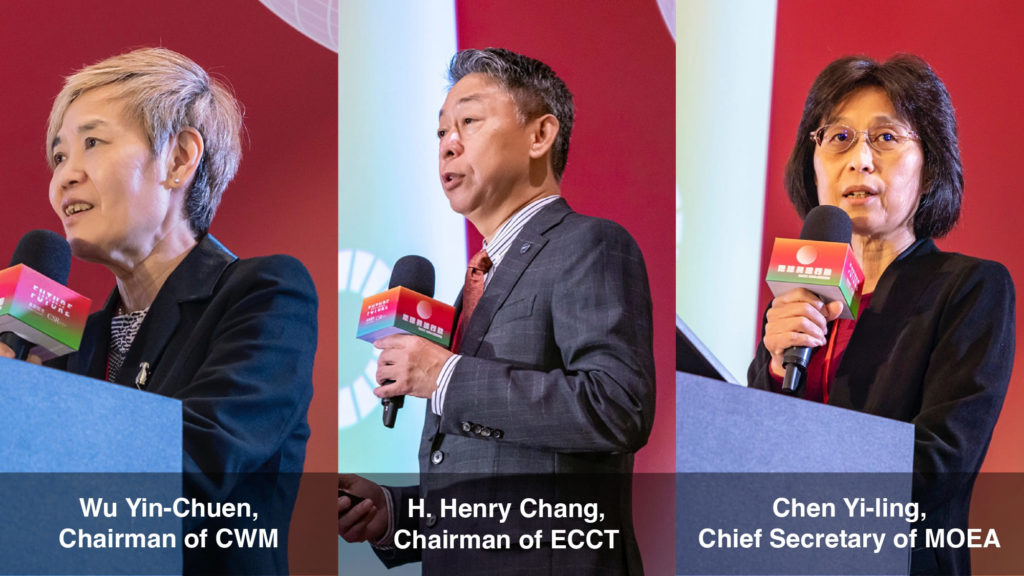
2022 SDGs Int'l Forum Opening Remarks
The 2022 SDGs Int'l Forum, held on 24 & 25 March, was organised by CommonWealth Magazine (#CWM) and ECCT’s Low Carbon Initiative (#LCI) for the third consecutive year. The two-day premium event was opened with remarks by CWM Chairman Wu Yin-Chuen, and ECCT Chairman Henry Chang, featuring speeches and panel discussions by prominent political, business, and non-profit organisation leaders, including six city mayors of Taipei City, Ko Wen-je 柯文哲, New Taipei City, Hou Yu-Ih 侯友宜, Taoyuan City, Cheng Wen-tsan 鄭文燦, Taichung City, Lu Shiow-yen 盧秀燕, Yunlin County, Chang Li-shan 張麗善, Kinmen County, Yang Cheng-wu 楊鎮浯, as well as speakers from leading Taiwanese companies and ECCT LCI members: L’Oréal Taiwan 台灣萊雅, Standard Chartered Bank 渣打銀行, Taiya Renewable Energy 台亞風能, and KPMG 安侯建業. This event was attended by over 350 people in person and over 2,000 online.
24 March morning session
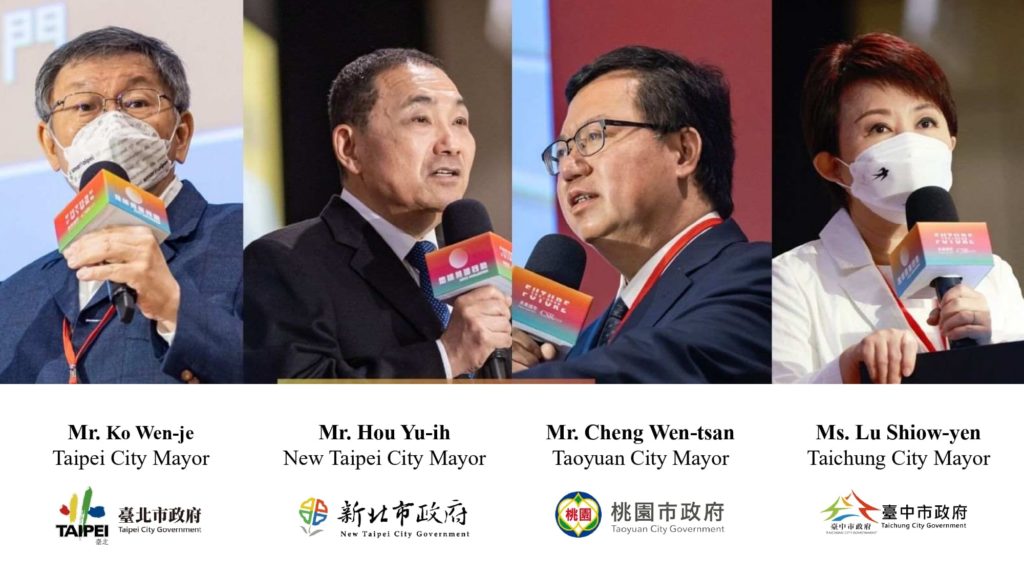
City Mayors from Taipei, New Taipei, Taoyuan and Taichung
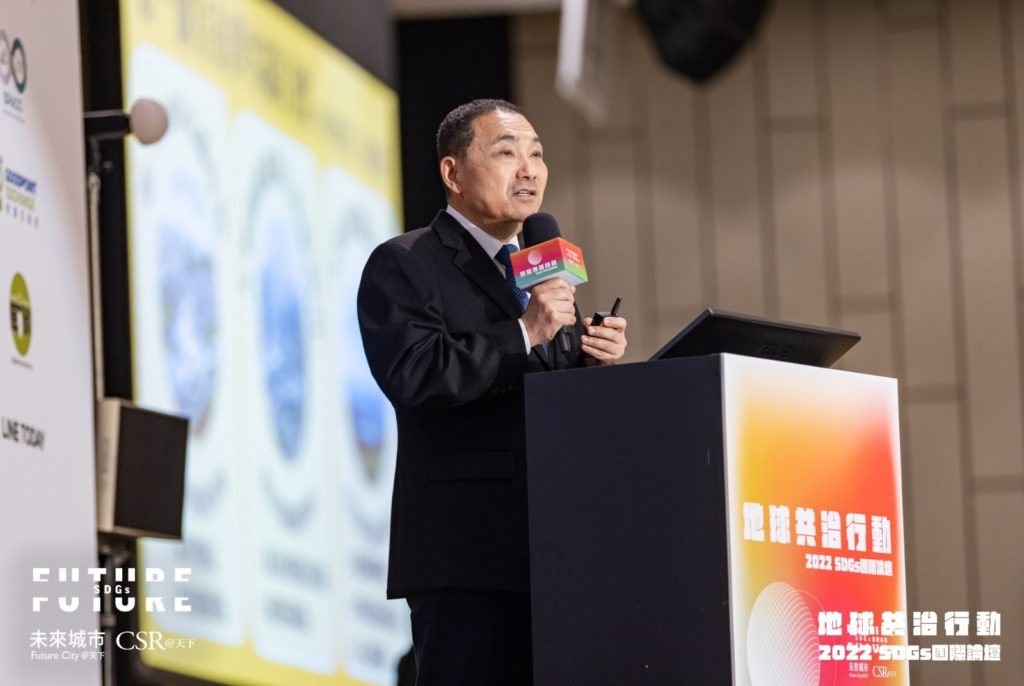
Hou Yu-ih, Mayor of the New Taipei City
- New Taipei City Hou Yu-Ih (0:07)
In his presentation, New Taipei Mayor Hou Yu-ih said that environmental factors are a priority consideration in the city's urban development. He noted that Taiwan's carbon emissions per capita are high compared to other developed countries. Getting to net-zero while maintaining economic development will therefore require a concerted effort on many fronts. While New Taipei has already made improvements in reducing emissions, the mayor said that efforts need to be stepped up to accelerate the reduction.
The mayor referred to his "three strategies and five guidelines" in 2020. The three strategies include the switch from fossil fuels to renewable energy sources for electricity generation, energy transformation, and energy efficiency improvement. The five policies are to improve energy efficiency and reduce energy use, smart transportation, green economy, renewable clean energy and smart innovation. He also noted that air quality in the city was improving, as indicated by steadily falling PM2.5 rates over the past few years. He went on to explain how the city will gradually reduce emissions to reach net-zero by 2050. He said he hopes to achieve the vision of a coal-free city in 2030 and increase the use of renewable energy.
New Taipei signed the Climate Emergency Declaration in 2020 and the city published a Voluntary Local Review (VLR) of its progress towards meeting SDGs in 2019 and 2021. From next year, the city will implement the "New Taipei Zero-Carbon Program Development and Design Outline" and "New Taipei Zero-Carbon Program Development and Design Specifications" to introduce zero-carbon design from development projects. Mayor Hou emphasised that in sustainable urban governance, no one should be forgotten, and social inclusion and economic development must be taken into account.
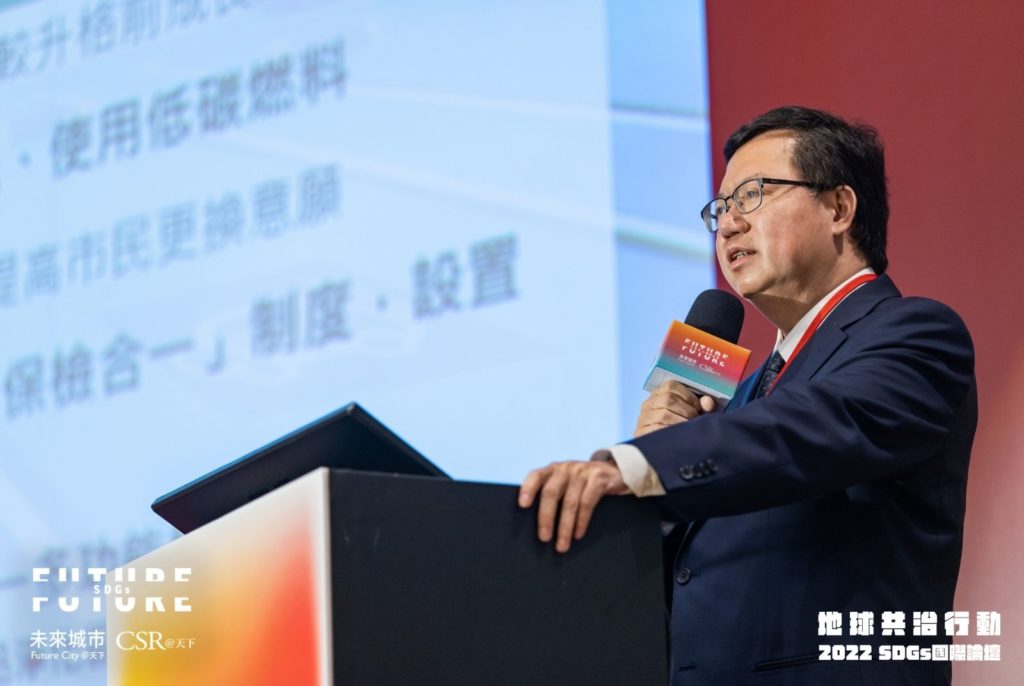
Cheng Wen-tsan, Mayor of Taoyuan
In his presentation, Taoyuan Mayor Cheng Wen-tsan noted how the city had expanded the capacity of solar PV energy rapidly over the past few years. Taoyuan is also making progress in reducing its overall carbon emissions. This will be helped by expanding the metro rail network in the city. Taoyuan has 12,000 factories and is also home to a large number of industrial and technology companies. According to the mayor, carbon emissions have been cut by 13.74% over the past seven years, mainly as a result of reductions in industrial power generation. Taoyuan has the largest PCB printed circuit factory in Taiwan. The city has provided subsidies and incentives to help energy intensive and highly polluting industries to reduce their carbon footprints.
The city also is increasing promoting an increase in the number of electric vehicles, including buses, cars and motorcycles. Most of the city's old street lights have been replaced with LED versions. The city also has tough environmental protection mechanisms in place to protect sensitive areas. The mayor went on to introduce the city's roadmap to net-zero emissions, which will require a gradual drop in emissions, especially from the largest industrial emitters.
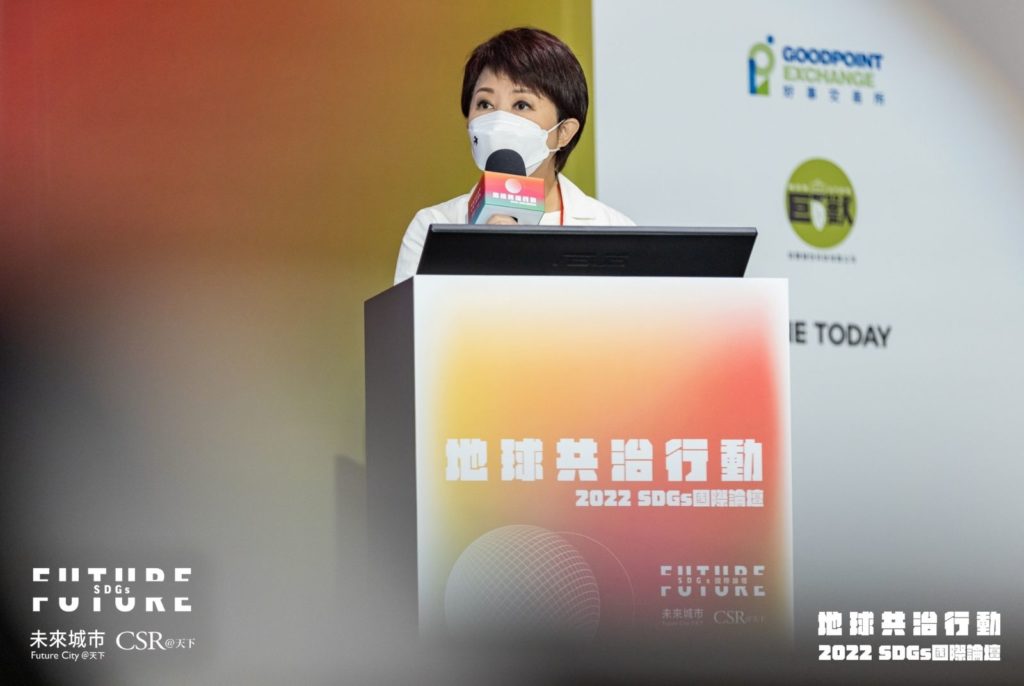
Lu Shiow-yen, Mayor of Taichung
In her presentation, Taichung Mayor Lu Shiow-yen introduced Taichung's SDG and ESG efforts. She remarked that it is difficult to reduce emissions in the city when it is home to one of the world's largest coal-fired power plants. Nevertheless, the city is determined to move towards becoming a coal-free city. The city is also working on other initiatives. For example, the mayor said that many school campuses used to use oil and coal-fired boilers to boil water and cook lunches but the city government has assisted campuses in replacing all boilers. Taichung has also introduced 215 electric buses and government subsidies to make ticket prices cheap, even for the longest commutes, are helping to encourage the public to use public transport.
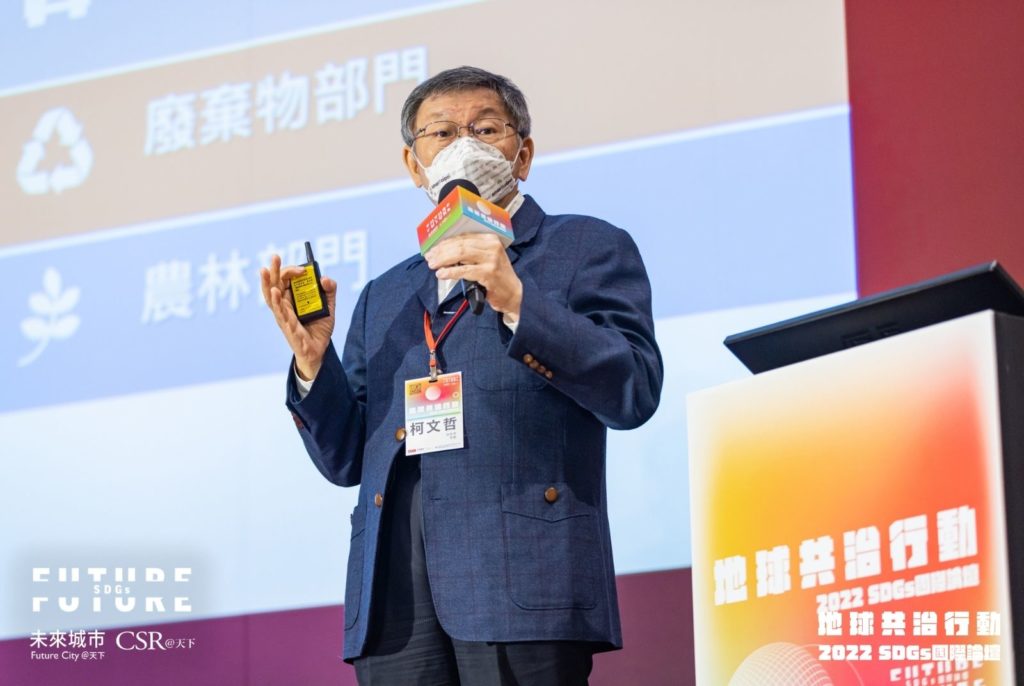
Ko Wen-je, Mayor of Taipei
- Taipei City Mayor Ko Wen-Je (3:32)
In his presentation, Taipei Mayor Ko Wen-je said the city is already working to reduce its emissions. According to the mayor, 74.6% of the city's direct emissions come from buildings while 20.58% are from transport. For these reasons, most of the city's focus will be on creating zero carbon buildings and green transport. One of the city's initiatives is to “renew” 3% of public buildings every year and increase green transportation. According to the mayor, the city will increase installations of EV charging and fully transition to electric buses by 2030 (400 electric buses will be on the roads of Taipei in 2022 and all 3,500 of the city's buses will be electric by 2030). The city's waste management department will continue to aim to reduce waste to build on its resource recovery rate of 70% and a sewage treatment population ratio of 94%. The mayor also touted his “EOD” school reconstruction-oriented urban plan, which aims to take advantage of the school building reconstruction process of 236 national high schools to incorporate other pressing community needs, such as childcare and elderly care. The mayor also said he regards the MRT circular line as the most important transport infrastructure development project in the city, which will help to alleviate traffic congestion, including in the Neihu district. Taipei is also a pioneer in the sharing economy with proven success in bicycle sharing and motorcycle sharing schemes. The mayor also said he is in favour of making consumers pay for disposable utensils in order to encourage the use of reusable ones.
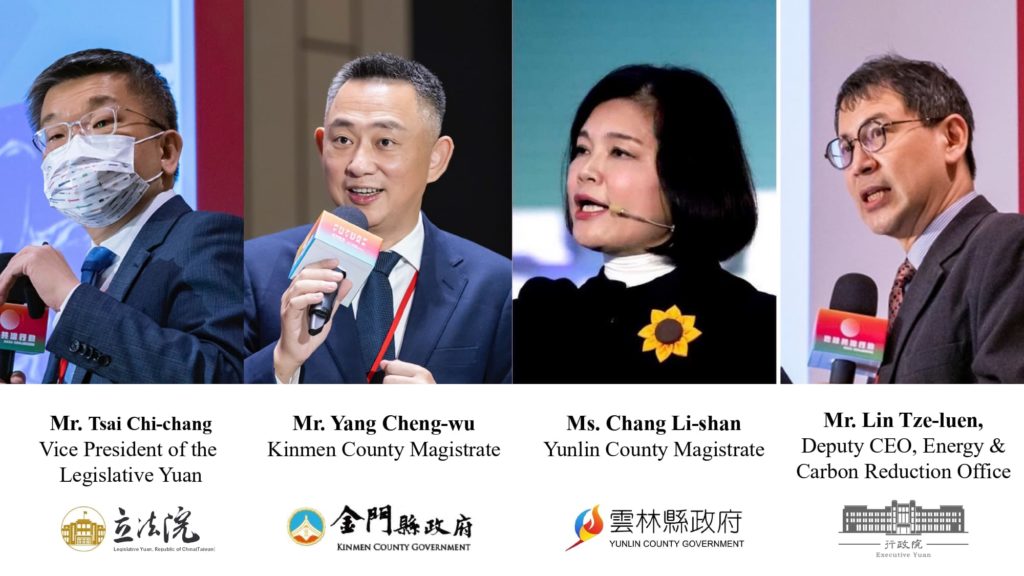
Top Officials from Kinmen, Yunlin, the Legislative Yuan and the Executive Yuan

Tsai Chi-chang, Vice President of the Legislative Yuan
Tsai Chi-chang, Vice President of the Legislative Yuan (LY), began by drawing attention to SDG 16 (Peace and Justice, Strong Institutions), about maintaining peace in the light of the war in Ukraine. Without peace, all other SDGs are in jeopardy. The LY's goal is clear: to help Taiwan reach its net-zero goals by putting in place the most suitable and effective legislation, bearing in mind that Taiwan is a diverse society with differing views. This means that compromise is needed to reach consensus. While the addition of renewable energy has been criticised as too slow, Tsai said that progress will speed up in future. He also drew attention to the need to protect the oceans, forests and reduce food waste. He concluded that taking action is everyone's responsibility and that we have to take care of people who have been negatively affected by climate change.
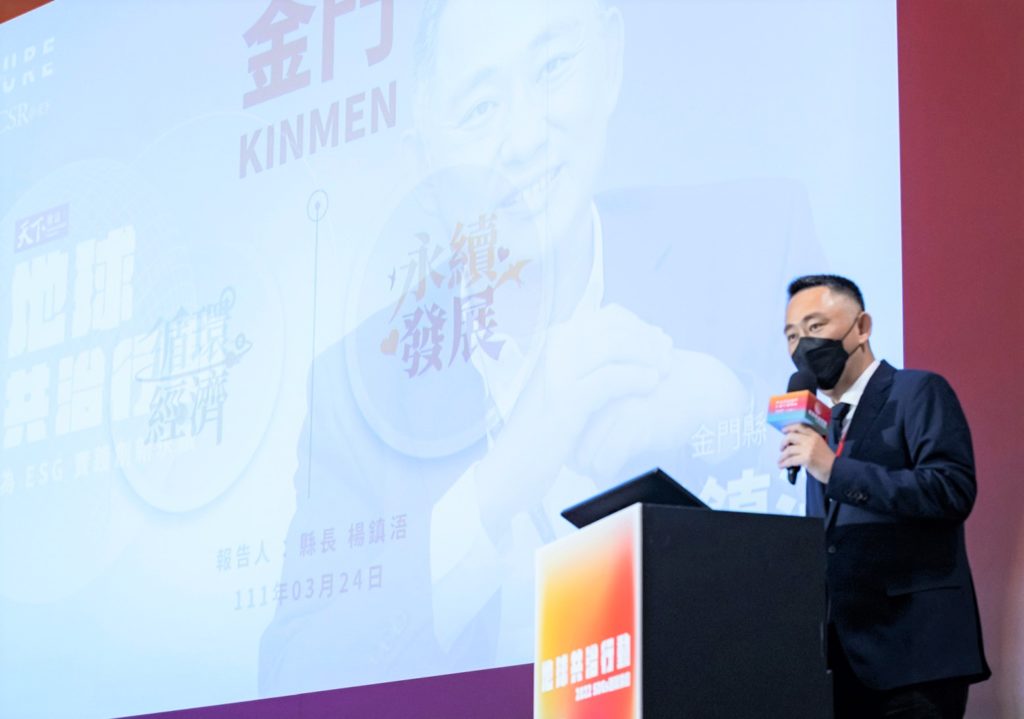
Yang Cheng-wu, Kinmen County Magistrate
In his speech Kinmen County Magistrate, Yang Cheng-wu highlighted Kinmen's successful industry sectors, especially tourism and the production of its trademark Kaoliang liquor. He also spoke about the challenges facing Kinmen, especially in terms of natural resources, human resources and balancing environmental protection with development. The Kinmen County Government published its VLR in November 2021. He noted that Kinmen has a lot of ocean pollution from marine waste, which is difficult to deal with. Nevertheless, the island has increased its general waste recycling rate to 74%, and reduced the proportion of food waste, according to the mayor. Kinmen is short of water, which creates a challenge for Kaoliang production, which requires a lot of water. According to the mayor, great improvements have been made in purifying as much as 140,000 tonnes of water for reuse. Greater beach clean-up efforts have been arranged to collect ocean waste and the island is cooperating with private enterprises to reprocess the waste into things like artificial fabric for clothing and other products. The island has also installed sophisticated facilities that speed up the process of converting kitchen waste into organic fertiliser.
24 March afternoon session 1
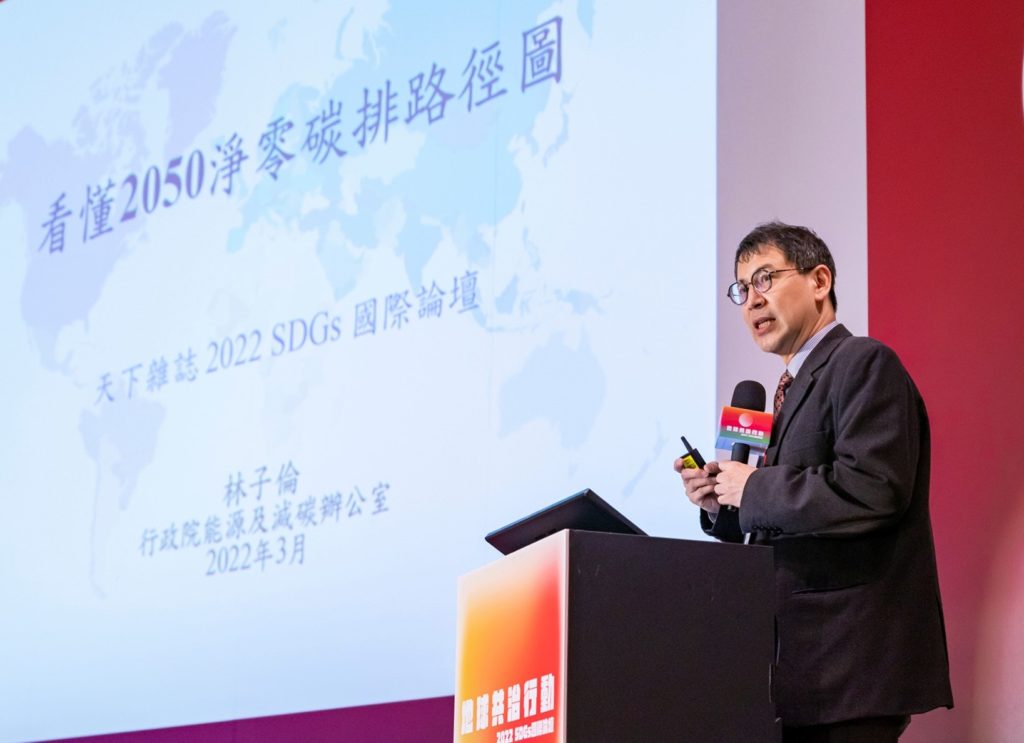
Lin Tze-luen, Deputy CEO at the Office of Energy and Carbon Reduction, Executive Yuan
In his presentation, Lin Tze-luen, Deputy CEO of the Executive Yuan's Office of Energy and Carbon Reduction spoke about understanding the pathway to net zero.
Lin Chuan-hsing, Vice President of Climate Change and Sustainability at KPMG gave a presentation on ESG strategies against climate risk. KPMG conducts an SGD survey every two years. Lin cited results from the 2020 report. It found that SDG coverage is unbalanced and inconsistent with business goals while businesses are more concerned about economic growth and ignoring things like biodiversity. While the number of companies disclosing SDG-related performance targets has risen, a large proportion of companies do not. However, global net-zero competition has become an important driver of transformation. One example is the “Race to Zero Campaign”. Launched by the United Nations, it is a global campaign to rally leadership and support from businesses, cities, regions, and investors for a healthy, resilient, zero-carbon recovery that prevents future threats, creates decent jobs, and unlocks inclusive, sustainable growth. According to the UN, the campaign has apparently mobilised a coalition of leading net zero initiatives, representing 1,049 cities, 67 regions, 5,235 businesses, 441 of the biggest investors, and 1,039 higher education institutions. Collectively these actors now cover nearly 25% of global CO2 emissions and over 50% of global GDP.
The UN's Intergovernmental Panel on Climate Change (IPCC) released its sixth assessment report (AR6) in February, which highlights the urgency of climate shocks. For example, about 50% of the world's species have moved to the poles or higher altitudes, hundreds of species have been lost in extreme heat, food and water security are paramount and middle and low latitudes are affected by larger negative shocks, which expose millions of people to severe food insecurity. The report also notes the adverse effects on human physical and mental health and that global warming causes human death, increases morbidity, and expands the areas affected by mosquitoes and consequent mosquito-borne diseases. Importantly, climate change will have a negative impact on people's livelihoods.
Lin noted that ESG is evolving and offered eight guidelines for enterprises to transform themselves into low carbon entities.
24 March afternoon session 2
Matt Lu, Business Executive of Nespresso Taiwan spoke about his company's circular economy practices. He explained the rationale for developing Nespresso coffee capsules which are designed to create a quality product as well as be recycled. While selling is easy, the problem was in creating a recycling system to make it convenient for consumers to recycle their capsules. He noted that the annual consumption of natural resources in the world is 100 billion metric tonnes, but the recycling rate of raw materials is only 8.6%, which means that 91% of raw materials are not recycled. The advantage of using aluminium for Nespresso's coffee capsules is that aluminium can be completely recycled over and over again. Every recovered capsule can be used again and re-enter the supply chain. Nespresso is also working to use recycled aluminum for its capsules rather than virgin materials. The used coffee grounds from the capsules can also be used for agriculture. The company is also dedicated to reforestation as part of its efforts to reach net zero carbon.
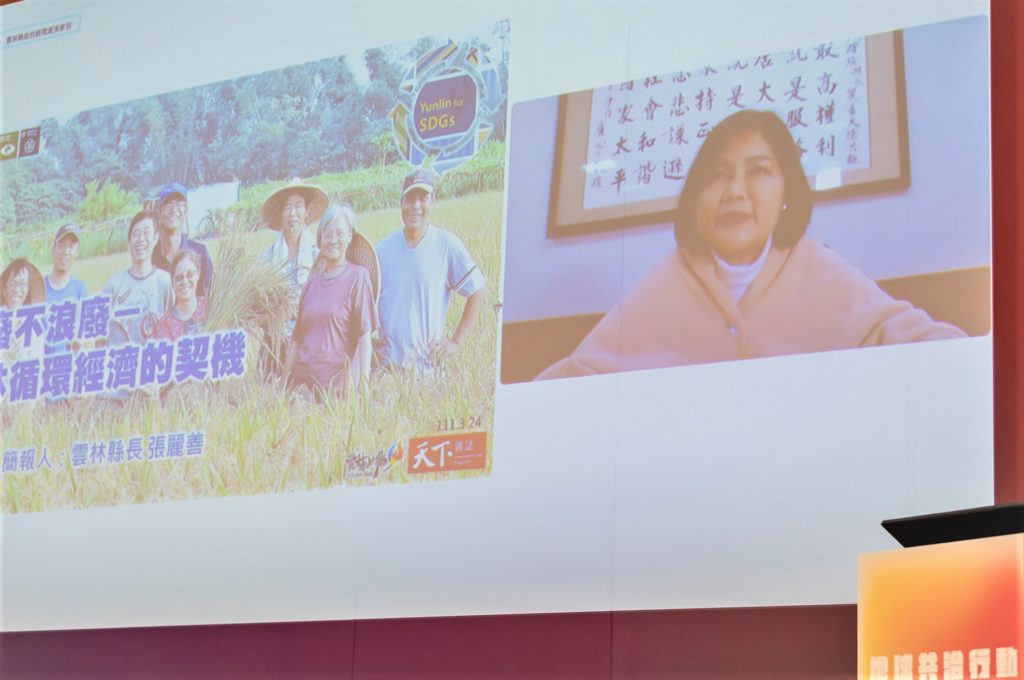
Chang Li-shan, Yunlin County Magistrate speaks via video conference
- Yunlin County Chang Li-shan (1:45)
In her presentation, Yunlin County Magistrate Chang Li-shan noted that Yunlin is a major producer of agricultural produce and that many people in her county are farmers or otherwise engaged in agriculture. However, given that the average age of farmers is 70, this raises questions about future sustainability. Dealing with agricultural waste is a problem. Farmers have traditionally burnt waste organic matter left over from harvesting rice, which creates a lot of pollution. In addition, the production of waste materials exceeds 13,000 metric tonnes per year, such as seedling trays, agricultural film, and plastic greenhouse covers. They too are often disposed of by burning, creating further pollution. To address this, agricultural waste is being converted to fertiliser and used to produce biogas. The county is also encouraging the use of biodegradable film for agricultural or other uses. For example, bamboo and pineapple leaves can be processed into biodegradable agricultural film or straws. Discarded clam and oyster shells can be ground down to make sterilization products for aquaculture.
In terms of agricultural waste from livestock, pig manure can be converted into fertilizer while chicken manure can be converted into pellets for use as biofuel. The magistrate stressed the importance of public-private partnership to achieve circular economy models. For example, her government has signed MOUs with a total of 15 mass retailers, supermarket chains, and local suppliers to promote the coordinated use of biodegradable materials, and implement the recycling and composting of agricultural vegetables and fruit packaging materials.
25 March morning session
The second day began with opening remarks by Tseng Wen-shen, Deputy Minister of the Ministry of Economic Affairs.
Michael Watters, Head of Economic and Prosperity Section of the British Office Taipei gave a presentation on the topic: “Virtuous Technology and Green Symbiosis”. He noted that the UK has been a leader in transitioning to a low carbon economy. At the end of last year, over 5,000 companies around the world had pledged to make changes to their supply chains and adopt various measures to address aid the transition through carbon pricing, green investment and financing. He added that 30 British companies are involved in Taiwan's offshore wind industry.
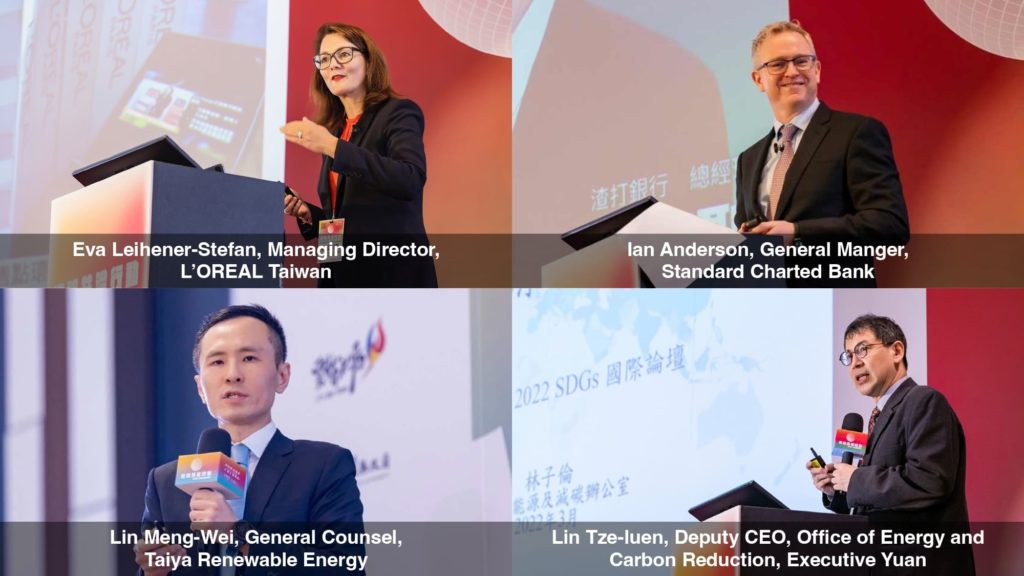
Representatives from L'OREAL Taiwan, Standard Charted Bank, Taiya Renewable Energy and the Executive Yuan
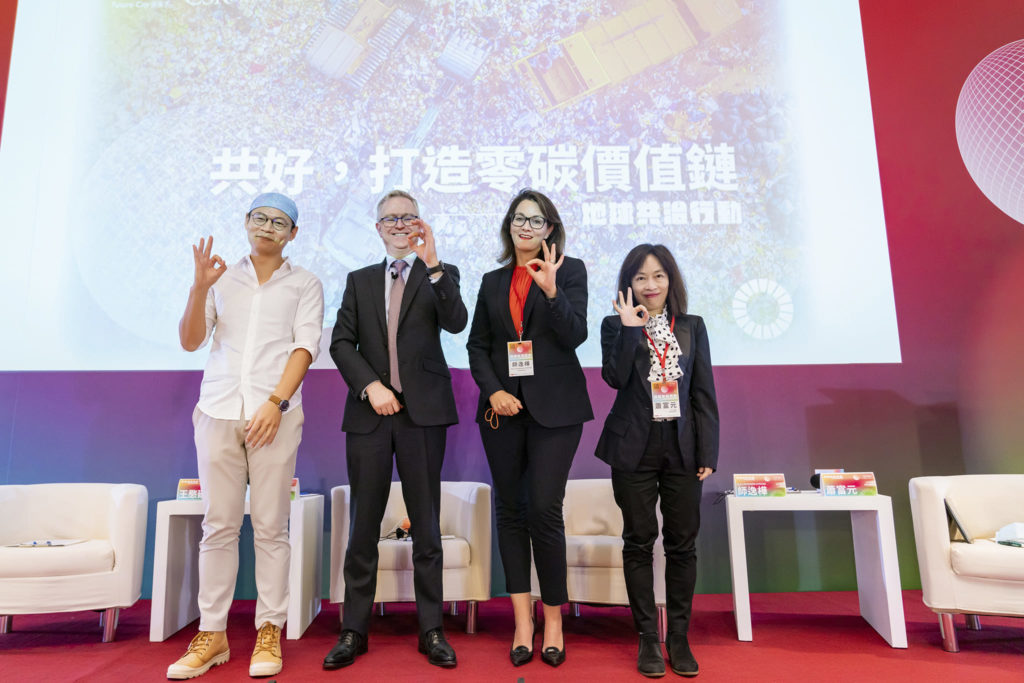
RFD Micro Electricity Chairman Wang Ming-di, Standard Charted Bank General Manager Ian Anderson, L'OREAL Taiwan Managing Director Eva Leihener-Stefan and CWM Chief Editor Xiao Fu-yuan
Eva Leihener-Stefan, Managing Director of L'Oréal Taiwan and Ian Anderson, General Manager of Standard Chartered Bank gave presentations in a session on the subject of building a net-zero value chain.
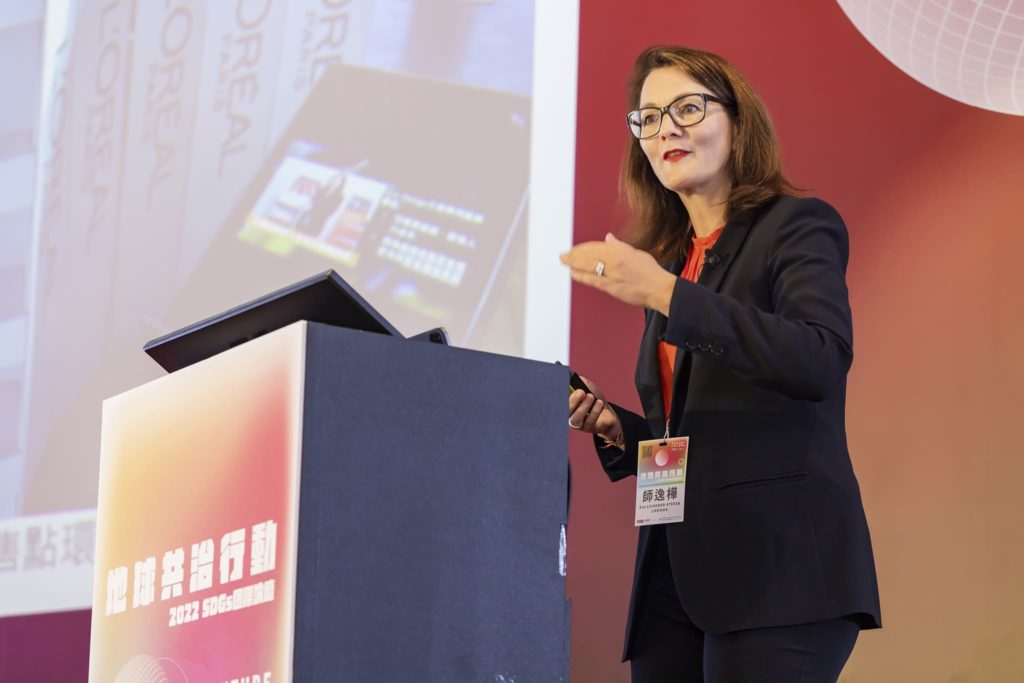
Eva Leihner-Stefan, Managing Director at L'OREAL Taiwan
In her presentation, Eva Leihner-Stefan spoke about her company's efforts to address gender equality, animal welfare, and fight climate change. The company pays special attention to environmental protection, especially water, forests and biodiversity. The company has also set up a fund to help disadvantaged women. The company's sustainable programme has targets to be 100% carbon neutral by 2025, for all water to be recycled by 2030 and to achieve completely sustainably sourced packaging by 2030. The company has also pledged to restore degraded environments. The speaker highlighted the L'Oréal-UNESCO For Women in Science International Awards, which are presented every year to five outstanding women scientists – one for each of the following regions: Africa and the Arab States, Asia and the Pacific, Europe, Latin America and the Caribbean, North America - in recognition of their scientific accomplishments. The award is the first of its kind to recognise women in science. In other initiatives, the company is using 100% recycled acrylic to make store display shelves. To reduce the use of excessive packaging, the company has modified packaging designs.
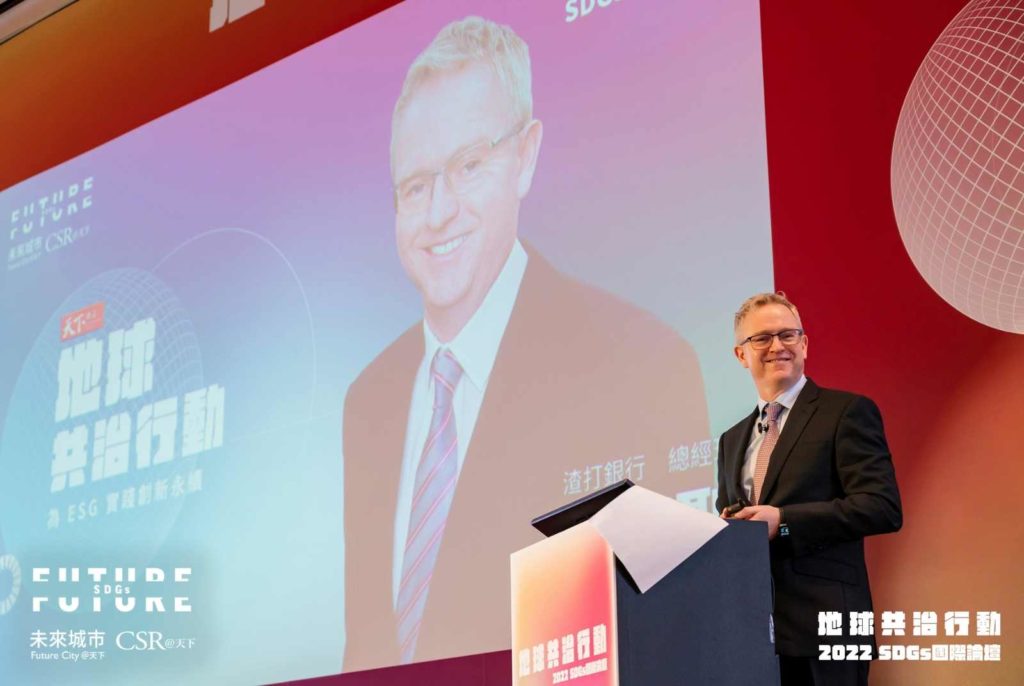
Ian Anderson, General Manager at Standard Charted Bank
In his presentation, Ian Anderson spoke about his experience in climate risk management. He quoted David Attenborough who said recently: “Right now we are facing a man-made disaster of global scale, our greatest threat in thousands of years: climate change. If we don't take action, the collapse of our civilization and the extinction of much of the natural world is on the horizon.” In order to avert a catastrophic climate disaster, it has been estimated that global clean energy investments of approximately US$4-5 trillion are required annually by 2030. Climate risk manifests through a combination of physical risks and transition risks.
Only 47% of businesses express full support for the Paris Agreement to promote the zero-carbon transition and 71% say they will not act aggressively until 2030. This means that from now until 2030 could be a lost decade. Standard Chartered has committed to achieving net-zero from its financing by 2050 and has produced a white paper on how to calculate emissions and set emissions reduction targets at the sector level.
Anderson noted that banks can play a role by helping clients to transition to low carbon by providing financing solutions, guiding funds to where they are most needed. Taiwan has many new regulations, such as requiring listed companies to disclose their carbon emissions. While most companies have pledged to take action, implementation remains slow while only a few state-owned companies have made meaningful commitments. Last year the bank did a customer credit risk assessment of 200 different customers to assess climate-related risks. While many companies are willing to take action, they will need significantly more funding to achieve their goals. The bank is helping by providing a variety of sustainable finance products for individual clients, such as green mortgages, sustainable time deposits and ESG investments. It has also teamed up with Doconomy to provide a digital tool that tracks carbon emissions and freshwater consumption on goods bought using the bank's credit cards. In addition, it is providing funding in excess of US$600 million for five offshore wind farms and a solar energy project as well as sustainability-linked loans to large local technology companies in Taiwan. In terms of its own environmental footprint, the bank reduced its carbon emissions by 11% between 2020 and 2021 and cut its water and paper usage substantially.

Lin Meng-wei, General Counsel at Taiya Renewable Energy
Lin Meng-wei, General Counsel of Taiya Renewable Energy, gave a presentation on opportunities in net-zero transition. The company has a core focus on green energy initiatives, including offshore wind, onshore wind and energy storage. Through its close government and local relationships, supply chain management and wind farm development experience, the company is supporting the global green transition and sustainable development.

The audience at the Forum
